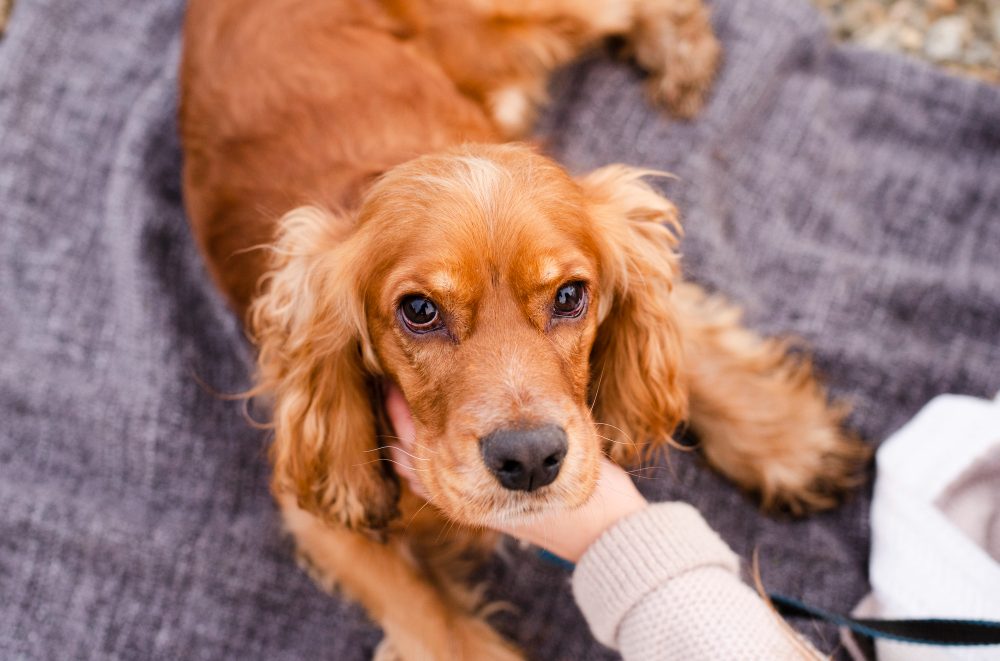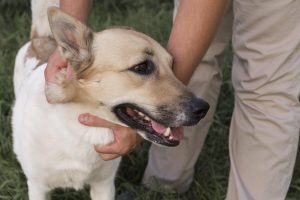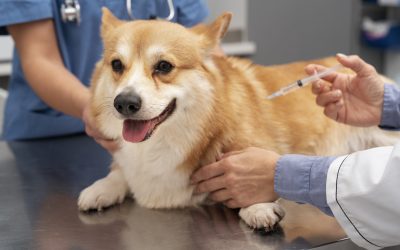Can You Put Neosporin on a Dog? [Risks & Alternatives]

What is Neosporin?
Neosporin is a popular over-the-counter antibiotic ointment that contains a combination of three antibiotics: neomycin, polymyxin B, and bacitracin. This ointment is commonly used to prevent infection and promote healing in humans’ minor cuts, burns, and other skin wounds. While it may seem like a convenient solution for our canine companions, using Neosporin on dogs can pose significant risks that pet owners should be aware of.
Understanding Canine Skin Wounds
Dogs’ skin is different from human skin, and it’s essential to understand how their bodies respond to injuries and infections. Canine skin is more delicate and sensitive, and their immune systems may react differently to certain medications and treatments. To avoid potential complications, it’s crucial to be cautious when applying any product, including Neosporin, to your dog’s skin.
Can Neosporin be Used on Dogs?
The short answer is that Neosporin is generally not recommended for use on dogs. While it may be tempting to apply Neosporin to your dog’s minor skin wounds, it is recommended that you consult with your veterinarian or call a televet if you have access to one, before doing so. Your vet can guide the appropriate course of action and suggest safer alternatives specifically formulated for canine use.
Potential Risks of Using Neosporin on Dogs
- Allergic Reactions: Some dogs may have an allergic reaction to the active ingredients in Neosporin, such as neomycin, polymyxin B, or bacitracin. These reactions can range from mild irritation to more severe symptoms like swelling, redness, and even anaphylaxis.
- Toxicity: If a dog ingests Neosporin, either by licking the application site or accidentally consuming the ointment, it can lead to gastrointestinal distress, vomiting, and even systemic toxicity. The antibiotics and other components of Neosporin can be harmful if ingested.
- Antibiotic Resistance: Repeated or prolonged use of Neosporin on dogs can contribute to the development of antibiotic-resistant bacteria, which can make future infections more difficult to treat.
- Delayed Healing: Certain ingredients in Neosporin, such as the preservatives, can actually impede the natural healing process and lead to prolonged recovery times for your dog’s skin wounds.
What Should You Do if Your Dog Licks Neosporin?
If your dog has managed to lick or ingest Neosporin, monitor them closely for any signs of adverse reactions, such as vomiting, diarrhea, or skin irritation. Contact your veterinarian immediately for guidance on the appropriate course of action, as they may recommend a visit to the clinic for evaluation and potential treatment.
Dog-Safe Alternatives to Neosporin
If your dog has a minor skin wound, there are several safer alternatives to Neosporin that you can consider:
- Saline Solution: A simple saline solution can be used to gently clean and flush out minor wounds, helping to remove dirt, debris, and bacteria without introducing any potentially harmful chemicals.
- Petroleum Jelly: A thin layer of petroleum jelly, such as Vaseline, can be applied to the wound to help keep it moist and promote healing.
- Hydrocortisone Cream: A low-strength hydrocortisone cream can be used to soothe and reduce inflammation in minor skin irritations, but it should be used sparingly and with caution.
- Veterinary-Approved Topical Ointments: Your veterinarian may recommend a specialized, dog-safe topical ointment that is specifically formulated for canine use and contains ingredients that are safe for your pet.
How Can Pet Insurance Help You if Your Dog Needs Neosporin?
Pet insurance can be a valuable tool in managing the costs of treating a dog’s veterinary expenses. By having a pet insurance policy in place, you can have peace of mind knowing that you can provide medical care for your furry companion without worrying about the financial burden. Pet insurance can help cover the costs of veterinary consultations, diagnostic tests, medications, and even specialized treatments if required.
Reimbursement
This method is the most common for pet insurance companies. You pay out of pocket for the veterinarian bill, and then the insurance company reimburses you for what’s covered under the insurance plan. The steps look like this.
- You pay the vet bill after your dog’s visit.
- You fill out the pet insurance claim form.
- Submit the claim form and other required documentation to the insurer.
What Does Odie Pet Insurance Cover?
Pet insurance covers various veterinary expenses, providing financial protection and peace of mind for pet owners. Here are the details of the coverage options offered by Odie Pet Insurance:
Illness & Injury Plan
The Illness & Injury Plan is an all-inclusive insurance plan designed to cover a wide range of medical needs for your pet. This plan includes comprehensive coverage for various illnesses, injuries, and veterinary services. Some of the covered items include:
- Veterinary exams and consultations
- Diagnostics (e.g., X-rays, lab tests)
- Prescribed medications
- Surgeries and hospitalization
- Rehabilitation, acupuncture, or chiropractic treatments
- Medically necessary supplies
- Euthanasia and cremation
The Wellness Plan
The Wellness Plan is a monthly membership that focuses on preventive care and covers routine veterinary services.
- Provides reimbursements for routine care items such as wellness visits (exams and vaccines), testing and parasite prevention, dental cleanings and at-home dental care, vitamins, supplements, and more.
- Through Odie’s partnership with Petivity, a leader in smart pet products and proactive care, Wellness Plan members can also receive reimbursements for Petivity devices and health kits, as well as eligible Purina food and supplements.
- Total reimbursement up to $700 per year.




